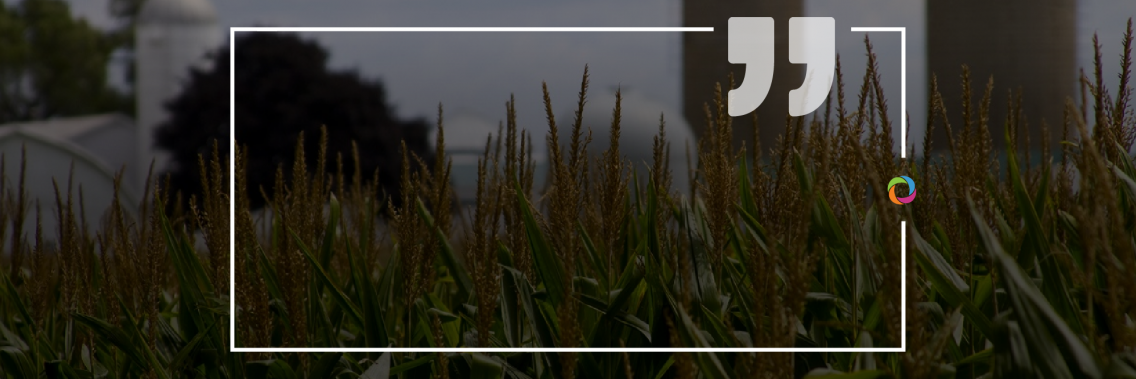According to the OECD–FAO Agricultural Outlook 2020-2029, the COVID-19 pandemic is expected to depress demand over the next few years and could further undermine food security. The fight against the global pandemic is causing unprecedented uncertainties in global food supply chains with potential bottlenecks in labor markets, input industries, agricultural production, food processing, transport and logistics as well as shifts in demand for food and food services. Several international experts in agriculture have shared their opinions regarding this matter.
How do you see the economic and social impacts of the pandemic on the medium-term outlook for global agricultural production and food consumption?

“The pandemic will definitely lead to food shortages in the 2021/2022 season because of the lockdowns that have led to poor market linkages and have curtailed the supply of farm inputs. Income generation among smallholder farmers has seen a huge decline due to transport restrictions especially for export markets. The crisis is disrupting the work of food producers and threatens to devastate poor rural communities. These challenges may lead to a weak social fabric that is detrimental to the cooperative movements among farmers thus opening a way through which unscrupulous middlemen stand to gain from the hard labor of smallholder farmers in particular. We expect a rise in food and input prices hence civil unrest related to food insecurity and climate change is bound to occur particularly in developing nations globally.”

“Kindly note that the pandemic has brought to light the shortcomings of local food production and the local supply of food for populations living in marginalized communities. For example, Laos and Cambodia have already asked their farmers and agribusiness players to cooperate more closely with each other in order to lessen dependency on food imports. A solution is to educate farmers and business players alike in production methodologies, quality control, marketing and home spun value chains in order to overcome food shortages and import deficits. Concurrently you also enrich the local treasury by retaining highly prized FOREX that can be used for other vital non-locally produced items.”

“In the medium-term, the economic and social impacts of the pandemic could negatively affect global food security. In the case of agricultural production, this would be seriously affected by a decrease in people’s purchasing capacity due to a lack of income caused through interruptions to different economic activities in each country that has generated a definitive closure of many businesses and has caused an increase in unemployment, causing problems for people to access food. In addition, health problems can affect different actors in the food supply chain which can, at some point, lead to an interruption in availability of food.”

“The medium-term outlook will depend on the type of agricultural commodity. Basic food items (like rice and wheat) and the agricultural production systems based on these commodities will be robust with limited COVID induced fluctuations in price after the initial uncertainty in March when there were concerns countries would restrict exports. In some cases, food distribution programs may have distorted commodity prices with some economies disrupting the “normal market” system. In these situations, cash transfer systems should have been expanded. In contrast, discretionary agricultural products that supply the hospitality sector will undergo greater uncertainty. For example, in Indonesia, global coffee prices are still significantly depressed as coffee harvested over the last few months is still being stored while farmers move into another harvest season. However, in 2021 it is expected consumption will continue to increase as economies open up when countries are better able to manage COVID and vaccines become available. The focus will then have to return to the major agricultural production problem facing the global economy, the impact of climate change. Droughts and floods will increase in intensity in some parts of the world.”

“COVID-19 illuminates the weaknesses in the global food system while it expeditiously advances transformation. Despite the unfortunate downsizing and closures of some food enterprises, most notably small businesses, out of calamity humans advance. Rather than focus on the downside, a media foible, there are thousands of entrepreneurs who see light beyond the darkness. Technology enables rapid communications, greater collaboration and sharing of innovation for conglomerates and small producers alike; although more challenging for the small producer, once untouchable, their access is improving. The challenge is how to diminish the conglomerate self-serving capitalist philosophy – profit-by-any-means necessary, and replace it with a more collective and equitable culture. Innovation, money, policies have a limited impact on small producers without philosophical change among the influential. I speak as a member of a historically marginalized community denied the wellbeing of food production and marketing.”

“The pandemic has had a bad impact on agricultural sectors all over the world. The great loss of jobs and consequently sources of income have resulted in lower demand for agricultural produce which has resulted in severe losses for farmers and associated industries. The Palestinian exports of fresh produce faced a major setback due to the restrictions imposed by importing countries because of COVID-19. The loss in exports was estimated at 95% in some agricultural sectors. Furthermore, the price of the fresh produce has dropped significantly as a result of the huge supply and low purchasing power.”
What should the relevant international organizations do in this regard?

“The first approach would be to support the smallholder populations who need it most. This is crucial to mitigate the effects of the outbreak and protect the world’s food systems. Disruption to vegetable farming now could lead to shortages of nutritious vegetables in the near future. Vegetable farmers need continued access to seeds and other essential agriculture inputs. This can be achieved through working together with other seed/fertilizer companies and central and local governments to get exemption from lockdowns in order to minimize the impact on farming. Food and related inputs should be considered global essential goods and they should be given a safe corridor for passage. A good approach would be to promote the participation of women in the value chain, boosting farmer entrepreneurship skills through enhancing digital and financial literacy, training rural entrepreneurs in general business skills and supporting farmers to identify output markets through certification, traceability and mapping schemes.”

“International organizations should initially support governments in two main directions. The first action should involve providing assistance for resolving the urgent needs of people who have lost their jobs. This should include an initial emergency response and a reconversion – a strategic learning plan for repositioning them into the new job market. The second one should be aimed at supporting the design of specific policies addressing the immediate solutions to the problems caused by COVID-19 in food supply chains (from the field to the consumer): personnel health and safety assurance, food security, food losses and shifts in consumer patterns (resulting from a slowing down of all productive processes). In the light of the COVID-19 pandemic, these actions may include but not be restricted to developing: i) new initiatives to increase the shelf life of perishable products; ii) revised food and safety assurance procedures throughout the supply chain; iii) personnel bio-safety assurance protocols; and iv) new emergency preparedness and response strategies.”

“In responding to the impacts of COVID-19 on agricultural production systems, the main focus of relevant international organizations is to support the collection of data within countries to put together a stronger global picture of where there are disruptions in the supply chains. At the start of the year, there was significant uncertainty as to how countries may respond to the COVID crisis. Some countries prohibited exports in order to ensure food security which, in turn, impacted on farmers’ income. Decision making needs to be based on a clearer picture with more reliable data. Governments are now stimulating the economy through the provision of significant funds. In some situations, these capital injections may disrupt the existing system as a result of cheap financing resulting in an oversupply of some commodities to the detriment of other longer term financially viable commodities. Better data and information can significantly improve a government’s decision-making process.”

“Unfortunately, although the FAO has done its work correctly in this new business era, it needs to re-plan its goals. Although mitigating outbreaks should not be a concern of the FAO, cooperation and co-working with the WHO might be a good suggestion to prepare the farming sector (macro and micro) for worst case scenarios and push food chain outputs to better index. This includes supporting communities affected by COVID-19 whose lives have been changed forever. We should never forget that with every pandemic hundreds of thousands of people die and millions are affected. Perhaps both entities understand the importance of working together and create a foundational model to counteract the effects of this modern-day virus including health, nutrition and economics. This might prevent 50% of job losses due to establishing a guide to increase sustainability in food production and a low-income family protection insurance positively correlated with their average incomes.”

“International organizations should immediately work in partnership with governments, NGOs, actors throughout food supply chains and community leaders to evaluate, prepare and mitigate an eventual food supply disruption and provide timely food aid to the most vulnerable communities in order to prevent future famines. Likewise, it is important that educational institutions, associations and NGOs are committed to develop community education on hygiene in food processing, good food storage and avoiding food losses and waste.”

“On the government’s part, to mitigate the impact, governments should develop policies that will shield farmers from the impact of COVID-19 that affect labor and the supply chain. Similarly, international agencies should collaborate to ensure the supply chain isn’t affected while ensuring quality standards are maintained. These new policies and international collaborations will bring about new innovations of how business is done in agriculture.”
Check more than 140 job opportunities in agricultural sector here.

